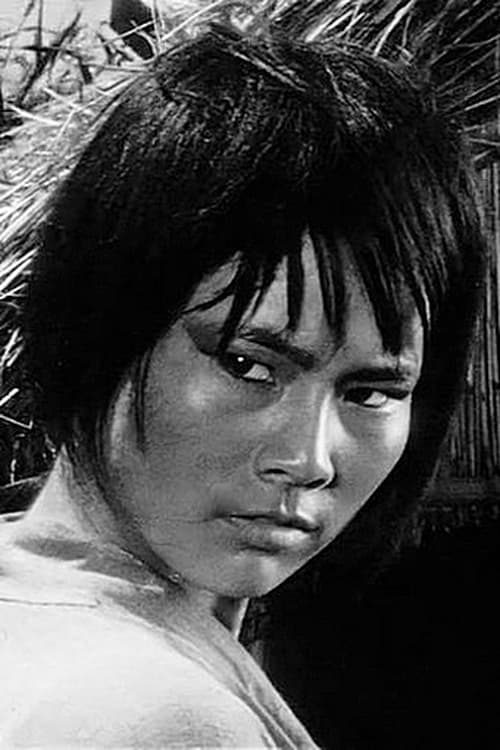Jitsuko Yoshimura
Nascimento : 1943-04-18, Tokyo, Japan
História
Jitsuko Yoshimura (吉村実子 Yoshimura Jitsuko, born 18 April 1943) is a Japanese actress. She was discovered by Shohei Imamura as a newcomer and cast in the film Pigs and Battleships. She went on to appear in The Insect Woman and Onibaba. She retired from acting in 1970, but returned in 1980 and continues to work to this day.

A girl is kidnapped and the perpetrator roams freely. When a similar case occurs along the same road and in similar circumstances a suspect is identified leading to the accused running away and going into hiding.
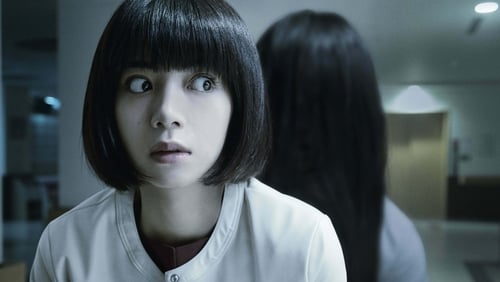
old woman
Uma garota com amnésia é deixada sob os cuidados da psicóloga Mayu (Elaiza Ikeda). De interesse da polícia, nem todos sabem o motivo da garota estar ali. Quando seu irmão, um aspirante a Youtuber em busca da fama, decide revisitar um site derrubado que causou a morte de cinco pessoas, as peças começam a se juntar e uma antiga maldição ressurge.

Are bad girls casualties of patriarchy, a necessary evil, or visionary pioneers? By tracing the concept of the bad girl in Japan as a product of specific cultural assumptions and historical settings, Bad Girls of Japan maps new roads and old detours in revealing a disorderly politics of gender. The essays explore deviancy in richly diverse media. Mountain witches, murderers, performance artists, cartoonists, schoolgirls, and shoppers gone wild are all part of the terrain.
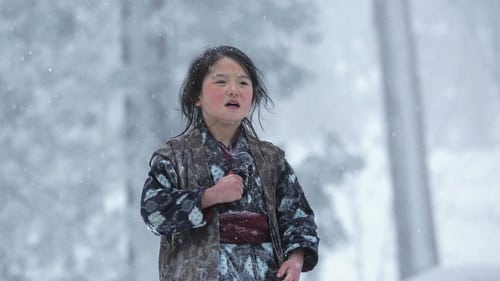
Naka Tanimura
Uma menininha chamada Oshin é enviada para trabalhar para uma outra família devido a dificuldades financeiras da sua própria. Apesar disso, a garota cresce e se torna forte.
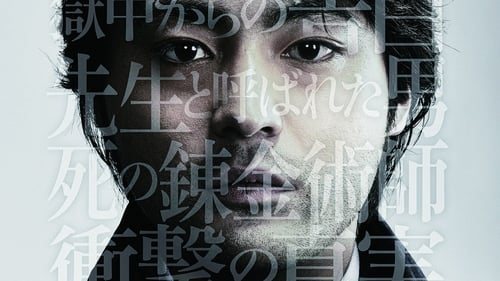
Kazuko Fujii
Death-row inmate Sudo (Pierre Taki) sends a letter to magazine reporter Fujii (Takayuki Yamada). In his letter, he states that a man named Kimura (Lily Franky), also known as "teacher," committed numerous murders for insurance money. While checking out the story, based on Sudo's tip, Fuji becomes convinced that the letter is correct. But, a lot of time has passed from the incidents and Sudo's testimony isn't clear. Due to the persistance of Sudo, who is a former yakuza, and Fuji, the police begin to move.

Kinu Hakamada
Based on the true story of former professional boxer Iwao Hakamada who has spent over 40 years incarcerated on death row. Iwao Hakamada was arrested for the June 10, 1966 murder of a family in Shizuoka . Iwao Hakamada has always insisted on his innocence and many others also believe Iwao Hakamada has been falsely accused ...

Grandmother
A young couple go on the run after the murder of his mother.
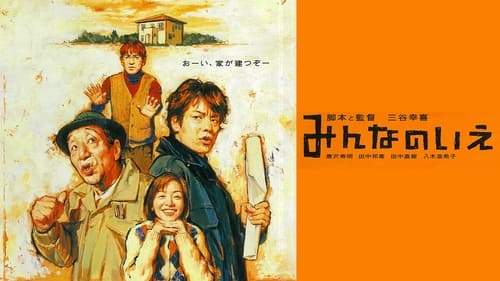
Mitsuyo Iwata
Two newlyweds decide to build their dream home, and hire an old friend named Yanagisawa to design it. Unfortunately, Yanagisawa isn’t licensed to build homes, so they call in the wife’s father, a retired carpenter, to help out. When Yanagisawa’s contemporary ideas clash with the old carpenter’s traditional Japanese methods, the project becomes a huge mess.

Kimie Fujisaki
Thirty years after graduation, a man and a woman meet again at an alumni reunion. They are no longer young, but the moment she sees him, memories of her first love are revived. Her love for him has never faded even though she married another man and bore his child. What has kept her going is a white shell the boy gave her and a phrase of Jean Cocteau's poem, "My ears are shells, fondly hearing the sound of the sea..." She gets a divorce, returns to her hometown and opens a bar named "Coquille," which means "shell." Without their knowing, an unexpected turn of events awaits the two...

Based on the long running manga of the same name by Sadao Shouji.

Movie adaptation of a novel by Rampo Edogawa.

Keiko Yoshida
An old man falls into a coma and dreams about his childhood during WWII.

From the point-of-view of the children, "Mother" tells the story of the most unappreciated, loving and giving mother, who would sacrifice her own life, and sometimes the life of others, for her loved ones. In the autumn of 1955, a family of five children is living in the Tohoku area. In order to take care of her paralysed husband, the mother has to sacrifice her five children by giving them away. The children has to suffer all the loneliness and hardships that this decision has brought them. 15 years have passed, all five of them have got married. Now, they come to understand that their mother's love for them was the greatest love of all.
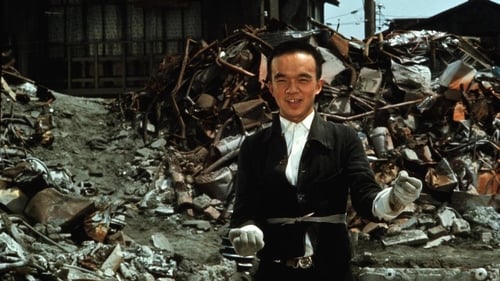
Yoshie Kawaguchi
Vários contos na vida de habitantes de favelas de Tóquio, incluindo um jovem mentalmente deficiente obcecado com a condução de seu próprio bonde. Ao mesmo tempo trágico e transcendente, esse filme de Akira Kurosawa acompanha o cotidiano de um grupo de pessoas maltrapilhas em uma favela nos arredores de Tóquio. Por mais desesperadoras que sejam suas circunstâncias, cada um deles - O pai e o filho sem teto imaginando a casa de seus sonhos; A jovem abusada pelo tio; O garoto que se imagina um condutor de bonde - encontra razões para continuar. O inesquecível Dodes'ka-den foi feito num momento tumultuado na vida de Kurosawa. E todas as suas esperanças, medos e paixão artística estão em exibição fervorosa neste filme, seu primeiro filme gloriosamente a cores. (e 12 - Estimado 12 Anos)

Lybia (voice)
Três pessoas do futuro são espiritualmente enviados de volta no tempo para reviver a era de César, Marco António e Cleopatra. Como companheiros próximos destas figuras históricas importantes, eles procuram compreender a natureza do plano do inimigo no seu próprio tempo.

If You Were Young: Rage highlights the other side of post-war Japanese prosperity, focusing on the throngs of young people who missed out on the boom. We follow a group of young men that can't seem to get ahead, despite their willingness to try. Then one hits upon a plane - to work together to save for a dump truck and thus become independent contractors and be their own bosses at last. Ultimately life presents obstacles: jail for one, violence at the hands of the police for another and a girlfriend and subsequent children for the third. An early Kinji Fukasaku gem that imports the freewheeling style of the French New Wave and the hip detachment of American noir.

Oyou
Impersonating an Imperial Army officer by wearing a "red lion's mane", a poor servant returns to his village after 10 years of absence to end the village's suffering caused by corrupt officials.

A woman has a brief, intense affair with a younger man while awaiting her trial for the murder of her husband's mistress.

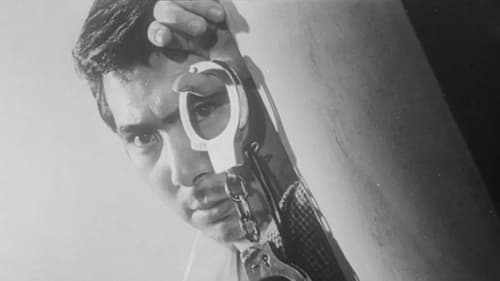
Toramatsu is a very enthusiastic policeman. Believing that the police should help others he is dismissed the force when his pistol is stolen while doing one of his good deeds. He saves a child from drowning, restores it to his mother, then finds that someone has run off with his gun and later uses it to kill. Then he breaks up a group of hoodlums attacking a young girl named Mieko, and the police, his former friends, deciding he has gone too far, decide to sue him. On top of this the girl gets hurt and, consequently, a child from the kindergarten where Mieko teaches is kidnapped on his way home. Impersonating a policeman he tracks down the gangsters and rescues the boy. Due to this he also uncovers a scandal which allows the police to make a long due clean up in the political world. As a reward for all of this he wins the regard of the girl but now faces a stiff prison sentence for impersonating the policeman he had been and which, at heart, he truly remains.

Japan-Hong Kong co-production.
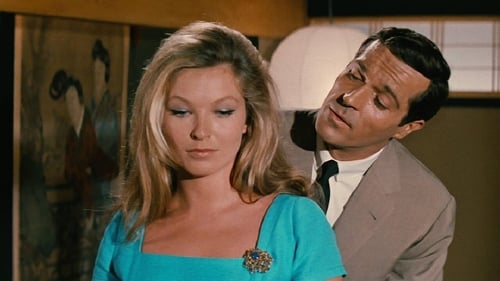
Tetsuko
After an American Navy base is annihilated by a secret weapon, Agent OSS 117 is sent to Japan to investigate the organization that's claiming responsibility, and threatening the US with another attack, if they don't pay.

Ayako, a young woman from a rural fishing village, is sold by her family into a brothel when her father takes ill. There, she is quickly stripped of her innocence and illusions.
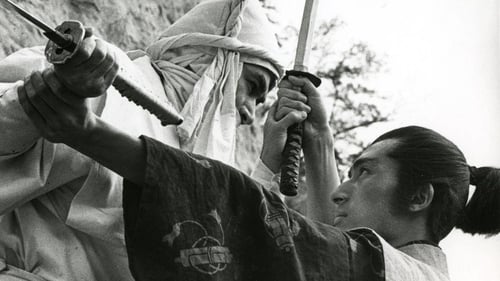
Omiyo
Years of warfare end in a Japan unified under the Tokugawa shogunate, and samurai spy Sasuke Sarutobi, tired of conflict, longs for peace. When a high-ranking spy named Tatewaki Koriyama defects from the shogun to a rival clan, however, the world of swordsmen is thrown into turmoil. After Sasuke is unwittingly drawn into the conflict, he tracks Tatewaki, while a mysterious, white-hooded figure seems to hunt them both. By tale’s end, no one is who they seemed to be, and the truth is far more personal than anyone suspected. Director Masahiro Shinoda’s Samurai Spy, filled with clan intrigue, ninja spies, and multiple double crosses, marks a bold stylistic departure from swordplay film convention.

The last judgment.
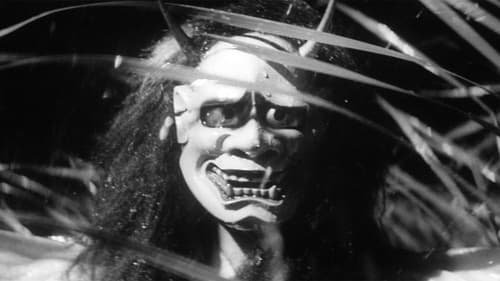
Young Woman
Século 14, Japão. Esperando o filho que está na guerra, uma mulher e sua nora sobrevivem em uma aldeia através de tocaias que armam para alguns soldados, matando-os e vendendo seus pertences. Com a morte do filho, a mãe põe em prática um plano diabólico para manter a companhia de sua nora.
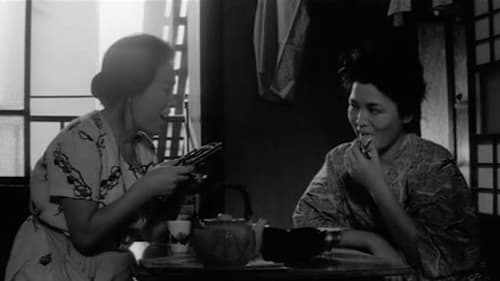
Nobuko
É entre os camponeses, os miseráveis, os gângsteres e as prostitutas que Imamura encontra terreno fértil. A Mulher Inseto (Nippon Konchuki, 1963), uma de suas obras-primas do período, conta a história de uma camponesa que, tal como um inseto, faz sua escalada da sobrevivência. Tendo atravessado, desde a adolescência, a violência sexual e o incesto, sua mudança para a cidade grande a conduz diretamente à prostituição e afinal ao controle de um bordel, onde passa a praticar toda sorte de atos vis, dos quais antes fora vítima. O tratamento do personagem como uma verdadeira heroína é absolutamente novo no até então moralista cinema japonês. E as tomadas de estilo documental, nas quais freqüentemente o personagem principal não passa de uma cabeça perdida na multidão das ruas da cidade, propõem exatamente o oposto das imagens de estúdio da Shochiku, sempre bem compostas e nítidas.
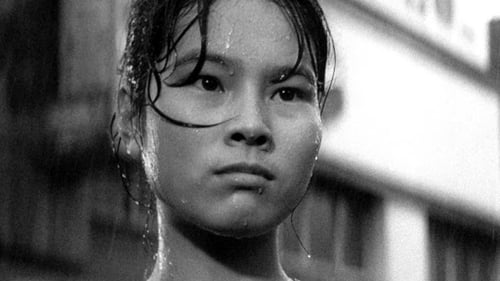
Haruko
Um jovem opta por trabalhar como cuidador de porcos da Yakuza ao invés de arranjar um emprego normal. Contrariado pela namorada e acreditando ser apenas um trabalho como outro qualquer, acaba sendo jogado em meio ao mundo do crime.
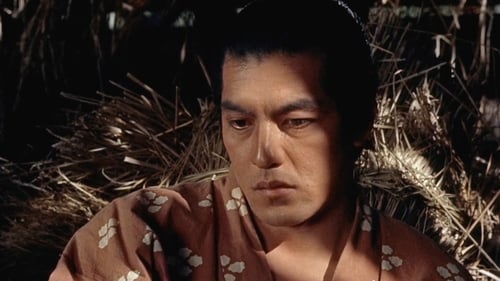
Ei
Ao lado do amigo Matahachi, o jovem órfão Takezo deixa seu vilarejo para se juntar ao exército e enfrentar uma batalha. Vendo-se perdedores, os dois procuram abrigo numa casa isolada onde vive a viúva Oko e sua filha Akemi. Oko acaba seduzindo Matahachi, que cai na tentação da mulher e se esquece de seu noivado com Otsu. Logo Oko, Matahachi e Akemi partem para viver em outro local, enquanto Takezo resolve voltar ao seu vilarejo. Lá ele narra os acontecimentos à família de Matahachi, que além de não aceitar os fatos ainda condena o jovem Takezo por traição. Ele será salvo da morte por um monge que irá ensinar ao rapaz o código dos samurais. O destino acaba colocando Otsu e Takezo no mesmo caminho. Apaixonada, ela promete a ele que irá esperar seu retorno como um cavaleiro errante.
